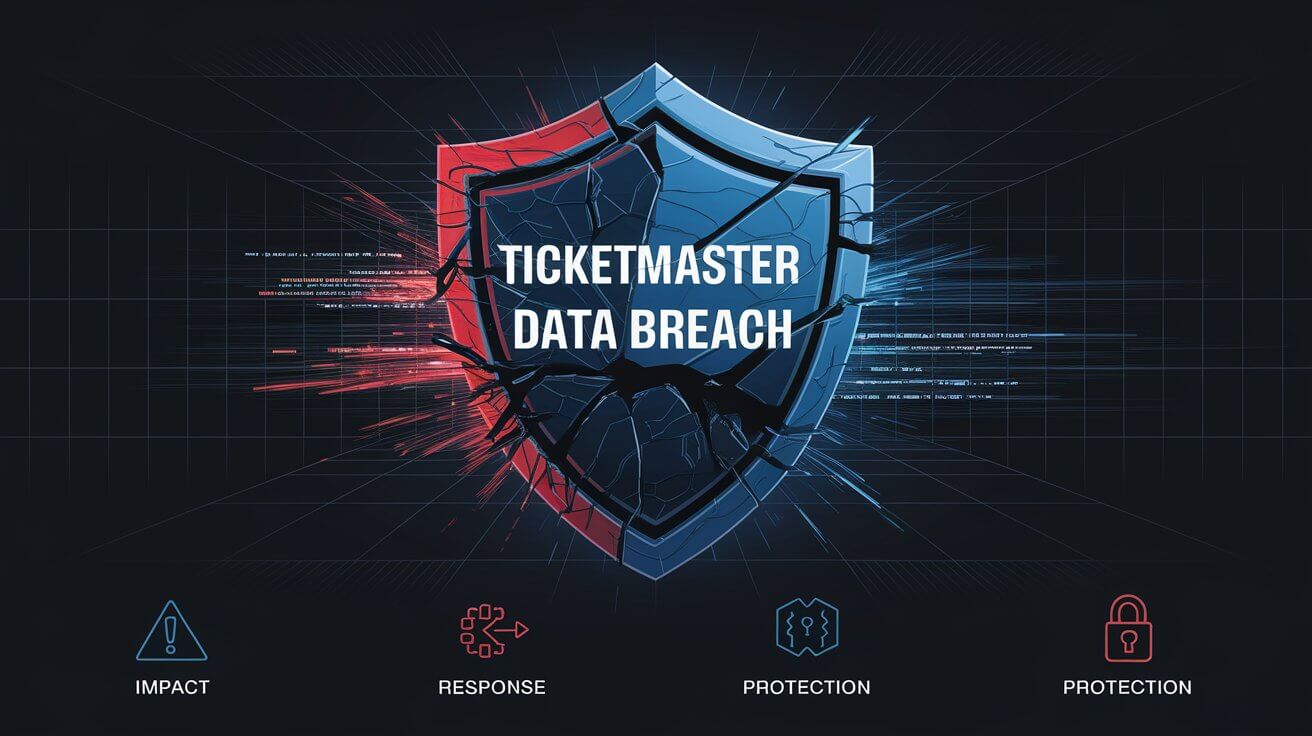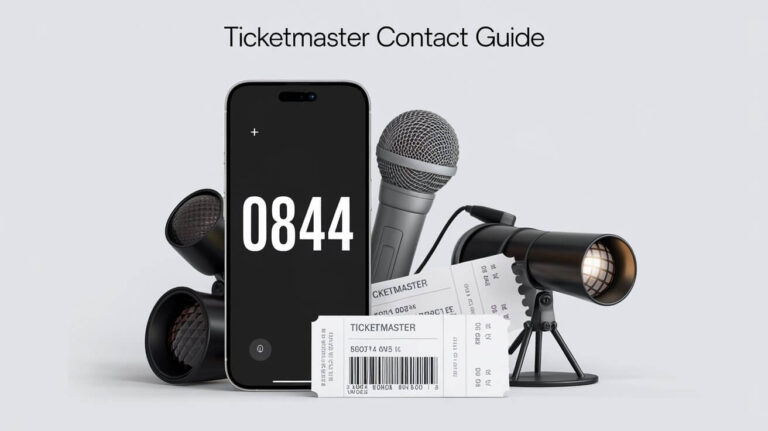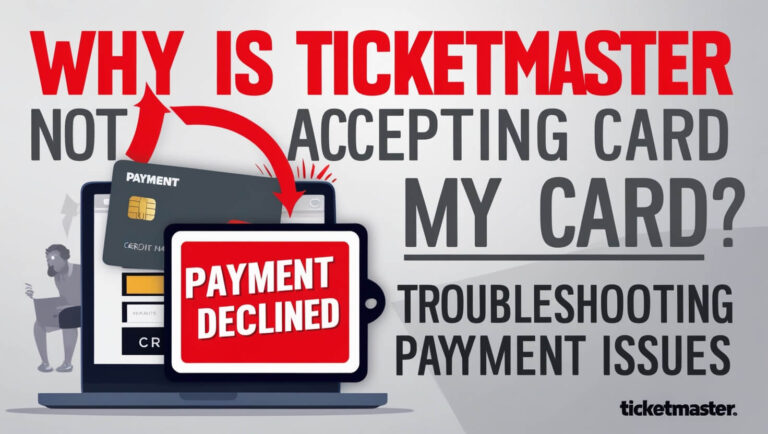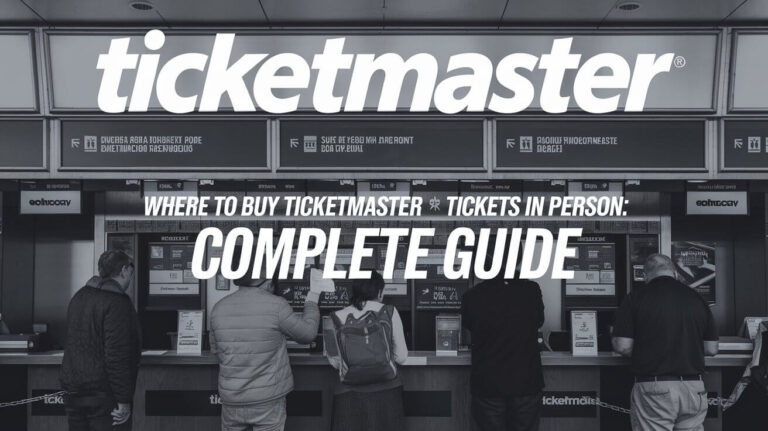
The 2024 Ticketmaster hack ranks among history’s worst data breaches. Thieves stole private data from 560 million customers, grabbing names, emails, and some credit card numbers. The attack rocked both fans and the ticket industry. Know the facts about what happened and steps to guard your info.
Ticketmaster Hack: What Happened?
Timeline of the 2024 Ticketmaster Data Breach
The Ticketmaster hack unfolded over several weeks, catching both the company and its customers off guard. Here’s how events played out:
- April 2 – May 23, 2024: Hackers gained unauthorized access to Ticketmaster’s customer data stored on a third-party cloud database.
- May 20, 2024: Ticketmaster detected suspicious activity in the compromised database.
- May 27, 2024: A criminal group offered alleged Ticketmaster user data for sale on the dark web.
- May 28, 2024: Live Nation, Ticketmaster’s parent company, filed a report with the Securities and Exchange Commission (SEC) about the breach.
- July 8, 2024: Ticketmaster submitted an official data breach notification to the Maine Attorney General.
This timeline reveals a gap of 51 days between the start of the breach and its discovery – a concerning yet unfortunately common scenario in many cyber attacks.
Extent of Compromised Information
The Ticketmaster data breach compromised a wide range of customer information:
- Names
- Email addresses
- Phone numbers
- Mailing addresses
- Ticket purchase history
- Partial credit card details (last four digits and expiration dates)
- Customer fraud details
While Ticketmaster initially downplayed the extent of the breach, later reports suggested that even barcode data for high-profile events like Taylor Swift’s Eras tour may have been accessed.
ShinyHunters: The Group Behind the Attack
The notorious hacking group ShinyHunters claimed responsibility for the Ticketmaster breach. Known for their high-profile cyber attacks, ShinyHunters allegedly exploited vulnerabilities in Snowflake, a cloud-based data warehouse used by Ticketmaster.
The hackers likely gained access through stolen credentials, possibly obtained through info-stealing malware. Once inside, they moved laterally through the system, eventually exfiltrating massive amounts of customer data.
Ticketmaster’s Response to the Data Breach
Initial Detection and Investigation
Ticketmaster’s response to the data breach began on May 20, 2024, when they first detected unauthorized activity. The company quickly launched an investigation, enlisting the help of “industry-leading forensic investigators” to understand the scope and impact of the breach.
While Ticketmaster’s 51-day detection time beats the industry average of 204 days, it still left a significant window for data theft and potential misuse.
Customer Notification Process
Ticketmaster’s communication with affected customers faced criticism for its delay and lack of transparency. Many users reported receiving notification emails in July 2024, over a month after the company discovered the breach. This lag in communication left customers vulnerable and uninformed about potential risks to their personal information.
Offered Remediation Measures
To address the fallout from the data breach, Ticketmaster offered several remediation measures:
- Free credit monitoring: Affected customers received 12 months of free credit monitoring and identity protection services.
- Fraud assistance: Ticketmaster provided access to fraud resolution specialists for those impacted by the breach.
- Password resets: The company encouraged all users to change their Ticketmaster account passwords.
While these steps are standard practice following a data breach, many security experts argued that Ticketmaster should have done more to protect its customers proactively.
Consequences of the Ticketmaster Data Breach
Potential Risks for Affected Customers
The Ticketmaster data breach exposed customers to several potential risks:
- Identity theft: Stolen personal information could be used to open fraudulent accounts or make unauthorized purchases.
- Phishing attacks: Armed with customer data, cybercriminals might launch targeted phishing campaigns.
- Financial fraud: Although full credit card numbers weren’t exposed, the partial information could still be valuable to fraudsters.
- Account takeovers: If customers reused passwords across multiple sites, their other accounts could be at risk.
Financial and Reputational Impact on Ticketmaster
The data breach dealt a significant blow to Ticketmaster’s finances and reputation:
- Stock price drop: Live Nation’s stock value fell following the breach announcement.
- Legal costs: The company faces potential lawsuits and regulatory fines.
- Customer trust erosion: Many users expressed frustration and loss of confidence in Ticketmaster’s security measures.
- Increased security spending: Ticketmaster will likely need to invest heavily in improved cybersecurity infrastructure.
Legal and Regulatory Implications
The Ticketmaster data breach triggered several legal and regulatory consequences:
- Class action lawsuits: Multiple lawsuits have been filed on behalf of affected customers.
- Regulatory investigations: Data protection authorities in various countries launched probes into the incident.
- Potential fines: Ticketmaster may face significant fines for failing to adequately protect customer data.
- Compliance requirements: The company will need to demonstrate improved security measures to meet regulatory standards.
Protecting Yourself After the Ticketmaster Breach
Steps to Secure Your Ticketmaster Account
If you’re a Ticketmaster user, take these steps to secure your account:
- Change your password immediately, using a strong, unique combination.
- Enable two-factor authentication if available.
- Remove any stored payment information from your account.
- Review your account activity for any suspicious transactions.
Monitoring Your Financial Information
Keep a close eye on your financial accounts:
- Check your credit card and bank statements regularly for unauthorized charges.
- Set up alerts for any unusual account activity.
- Consider placing a fraud alert or credit freeze with major credit bureaus.
- Be wary of unexpected emails, calls, or messages asking for personal information.
Utilizing Offered Credit Monitoring Services
Take advantage of Ticketmaster’s free credit monitoring offer:
- Locate the unique code in your breach notification letter.
- Visit www.mytrueidentity.com and enter your code to activate the service.
- Complete the enrollment process by providing necessary personal information.
- Regularly check your credit reports for any suspicious activity.
Lessons Learned: Improving Data Security
The Importance of Third-Party Risk Management
The Ticketmaster breach highlights the critical need for robust third-party risk management:
- Conduct thorough security assessments of all vendors and partners.
- Implement strict data access controls for third-party systems.
- Regularly audit and review third-party security practices.
- Develop incident response plans that include third-party breach scenarios.
Strengthening Authentication Measures
To prevent unauthorized access, companies should:
- Implement multi-factor authentication across all systems.
- Use strong, regularly updated passwords for all accounts.
- Employ advanced authentication methods like biometrics where appropriate.
- Regularly train employees on password security and phishing awareness.
Enhancing Incident Response Plans
Effective incident response is crucial in minimizing breach impacts:
- Develop and regularly test comprehensive incident response plans.
- Establish clear communication protocols for notifying stakeholders.
- Conduct regular tabletop exercises to simulate breach scenarios.
- Invest in advanced threat detection and monitoring tools.
The Broader Context: Data Breaches in the Entertainment Industry
Similar Incidents in Recent Years
The Ticketmaster breach isn’t an isolated incident in the entertainment sector:
- 2022 Cognizant breach: Hackers stole confidential client data from the IT services giant.
- 2022 Neiman Marcus attack: Customer payment information was compromised at the luxury retailer.
- 2023 Flagstar Bank breach: Personal and financial data of customers was exposed.
These incidents underscore the growing threat of cyber attacks across various industries.
Unique Challenges Faced by Ticketing Platforms
Ticketing platforms like Ticketmaster face specific cybersecurity challenges:
- High-value targets: Large customer databases make them attractive to hackers.
- Complex ecosystems: Integration with venues, promoters, and payment processors increases potential vulnerabilities.
- Real-time transactions: The need for instant ticket sales can sometimes conflict with rigorous security measures.
- Scalability issues: Handling sudden spikes in traffic for popular events can strain security systems.
Future Outlook: Ticketmaster’s Path Forward
Planned Security Enhancements
To prevent future breaches, Ticketmaster has announced several security upgrades:
- Enhanced encryption for stored customer data.
- Improved monitoring and threat detection systems.
- Regular security audits and penetration testing.
- Increased investment in cybersecurity personnel and training.
Rebuilding Customer Trust
Ticketmaster faces a long road to regaining customer confidence:
- Increased transparency about security measures and breach responses.
- Improved customer communication during security incidents.
- Enhanced customer support for addressing security concerns.
- Potential loyalty programs or incentives to retain affected customers.
Staying Vigilant in the Face of Cyber Threats
The Ticketmaster data breach serves as a stark reminder of the ever-present danger of cyber attacks. As hackers grow more sophisticated, both companies and individuals must remain vigilant. For businesses, this means investing in robust cybersecurity measures, regularly updating security protocols, and prioritizing customer data protection. For consumers, it’s crucial to practice good cyber hygiene, monitor accounts closely, and stay informed about potential threats.
By learning from incidents like the Ticketmaster breach, we can work towards a more secure digital future. Remember, in the world of cybersecurity, complacency is the enemy. Stay alert, stay informed, and stay safe.






